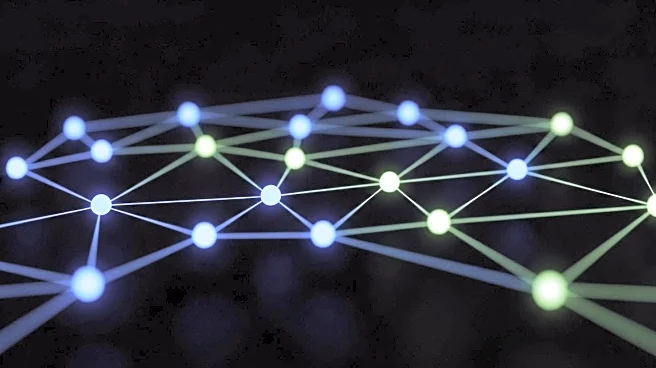What is the story about?
What's Happening?
The Pentagon's Chief Information Officer is spearheading a new initiative to reform the Department of Defense's IT enterprise. This reform focuses on streamlining classified networks to improve data sharing and interoperability. The effort is part of a broader strategy to enhance the department's technological capabilities and ensure secure and efficient communication across various defense sectors. Additionally, Lockheed Martin is in active discussions with the Pentagon regarding the development of a 'fifth-generation-plus' F-35, which would incorporate advanced technologies from sixth-generation fighter concepts. This initiative is part of the Pentagon's ongoing efforts to modernize its defense systems and maintain technological superiority.
Why It's Important?
These reforms are crucial for maintaining the United States' defense capabilities in an increasingly digital and interconnected world. By improving data sharing and interoperability, the Pentagon aims to enhance its operational efficiency and responsiveness to emerging threats. The discussions with Lockheed Martin about the F-35 upgrades highlight the importance of integrating cutting-edge technology into existing defense platforms. This could provide the U.S. military with a significant advantage in terms of air superiority and combat readiness. The reforms and technological advancements are expected to have a substantial impact on defense contractors and the broader defense industry, potentially leading to increased investment and innovation.
What's Next?
The Pentagon is expected to continue its efforts to reform its IT networks and integrate advanced technologies into its defense systems. This includes the development of detailed guidance and action plans to achieve its 2027 zero trust cybersecurity deadline. The ongoing discussions with Lockheed Martin may lead to new contracts and collaborations aimed at upgrading the F-35 fleet. These developments will likely attract attention from defense industry stakeholders, policymakers, and international allies, as they could influence future defense strategies and partnerships.
















